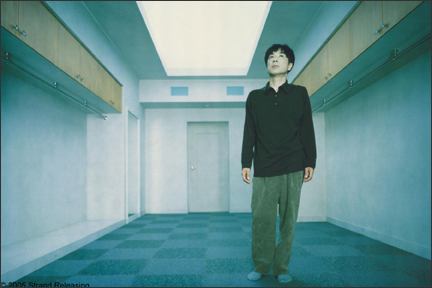 Tony Takitani (2004) is the first film ever adapted from one of my favorite writers—Haruki Murakami—and boy is it a wonderful adaptation! Murakami’s writing is filled with dreamlike, quirky moments and could make a number of interesting films, so I’m surprised this is the first adaptation, but hopefully it’s not the last.
Tony Takitani (2004) is the first film ever adapted from one of my favorite writers—Haruki Murakami—and boy is it a wonderful adaptation! Murakami’s writing is filled with dreamlike, quirky moments and could make a number of interesting films, so I’m surprised this is the first adaptation, but hopefully it’s not the last.Tony Takitani is kind of a meditation on loneliness and longing with an odd romance between an isolated illustrator and a younger woman with a love for clothes. The film is comprised of lots of quiet moments and lots of narration as the story of Tony’s life is told beginning with his father’s travails in WWII, his childhood and skipping ahead into his adult life.
Director Jun Ichikawa has fused Murakami’s prose into a short (only seventy-five minutes), beautifully crafted story full of odd turns and small moments of understated poignancy. Ichikawa has perfectly captured the tone and attitude of Murakami and what I love about his stories and it’s so surprisingly refreshing to see a film based on a story/novel I love and it works!
Maybe it’s an easier thing to accomplish in Japan, as if this was an adapted American version of the story, no clue what the various nitwits and yahoos in Hollywood would do to ruin the story. They’d probably toss in some explosions or a big joyous final scene at an airport, as one lover is about to leave but instead ends up in the “about to leave forever” lover’s arms. I love a happy ending as much as the next guy, but do we always have to have the same three or four happy endings?
Ichikawa loves these great languid tracking shots that he uses as cuts to lead us to the next scene or further along in the story. The camera moves slowly left to right (or right to left) and when it reaches out of the frame we move onto the next shot. Ichikawa would stack these tracking shots right on top of each other, one after the next, over and over. It was a wise choice, as it only added to the dreamlike nature of the film.
Ryuichi Sakamoto, another Japanese favorite of mine, composed the score, and it’s full of Sakamoto’s beautiful, minimal piano songs. Certain passages are repeatedly played and it adds to the hypnotic feel of the film.
Tony Takitani is a terrific Japanese film that can serve as a good introduction to the world of Haruki Murakami or stand on it’s own if you are familiar with his writing. Now, if someone (preferably Japanese) would have the courage to adapt his masterpiece The Wind-Up Bird Chronicle, I’d be a happy, happy robot.
2 comments:
it's likely to be one of my favorites of 2006 too.
i have picked this up in the new releases at scarecrow a number of times...and have it on my list. i am glad you reviewed it. will push me to get it sooner. wasn't this at the festival here in seattle a few years ago?
need to read his books...too.
soundtrack sounds perfect! how many soundtracks has he done?
Post a Comment